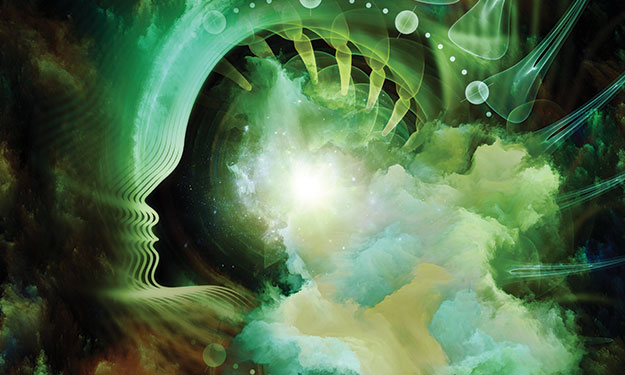Over the years, mental health has become a prevalent topic and is now widely recognized as an essential aspect of our overall well-being. With the increasing awareness and importance being placed on mental health, there has been a growing interest in alternative forms of therapy that can effectively treat mental health conditions. One such form of therapy gaining attention is psilocybin therapy.
Derived from magic mushrooms, psilocybin is a naturally occurring compound known for its mind-altering effects. While recreational use of this substance may be illegal in many countries, recent studies have shown promising results when used in a therapeutic setting for treating depression and anxiety. This article will explore what psilocybin is, how it works, and the potential benefits and implications of psilocybin treatment in the field of mental health care.
What is psilocybin and how does it work?
Psilocybin is a naturally occurring compound found in certain mushrooms, often called “magic mushrooms.” When ingested, psilocybin is converted into psilocin, which interacts with serotonin receptors in the brain, particularly the 5-HT2A receptor. This interaction leads to changes in perception, mood, and cognition, often resulting in enhanced sensory experiences, altered thought patterns, and a sense of expanded consciousness.
In therapeutic settings, psilocybin’s effects can help individuals explore their inner selves and gain new perspectives on their thoughts and behaviors. This deep introspection can be particularly beneficial for addressing mental health issues such as major depressive disorder, anxiety, and PTSD.
History of psilocybin mushroom therapy
The use of psilocybin mushrooms for spiritual and therapeutic purposes dates back thousands of years, with evidence found in ancient indigenous cultures across the world. However, it was not until the 1950s that Western society began to take notice of psilocybin’s potential benefits.
In the 1950s and 1960s, researchers such as Humphry Osmond and Timothy Leary conducted studies on the effects of psychedelic drugs, including psilocybin, on mental health. These studies showed promising results, but due to the widespread recreational use of these substances during this era, they were eventually banned and classified as Schedule I drugs in many countries.
Recently, there has been a resurgence of interest in studying the therapeutic potential of psilocybin, and clinical trials have shown promising results. In 2018, the FDA designated psilocybin therapy as a “breakthrough therapy” for treatment-resistant depression, paving the way for more research into this innovative treatment.

Psychedelic and consciousness research
The renewed interest in psychedelic therapy has also sparked a new wave of research into consciousness and how psychedelics may be used to explore the depths of our minds. Scientists have used brain imaging technology, such as fMRI scans, to study changes in brain activity during psilocybin-assisted therapy sessions. These studies have shown increased communication between different regions of the brain and reduced activity in areas associated with depression and anxiety.
Furthermore, psychologists and therapists are incorporating techniques like mindfulness, cognitive-behavioral therapy, and acceptance and commitment therapy into psilocybin-assisted sessions to enhance the therapeutic effects. This integrative approach shows promising results for long-term mental health benefits.
Potential benefits of psilocybin therapy
While more research is needed, early studies have shown that psilocybin treatment has the potential to provide long-lasting benefits for individuals struggling with mental health issues. Some potential benefits include:
Improved mood and well-being
Psilocybin has been shown to significantly reduce symptoms of depression and anxiety in patients, leading to an overall improvement in their mood and sense of well-being. Clinical trials have demonstrated that psilocybin can produce rapid and sustained antidepressant effects, often with just one or two sessions. This makes it a promising alternative for individuals who have not responded well to traditional treatments.
Increased self-awareness
The altered state of consciousness induced by psilocybin allows individuals to gain new insights into their thoughts, behaviors, and emotions. This heightened self-awareness can promote personal growth and help individuals understand and address underlying issues contributing to their mental health conditions. Many patients report having epiphanies about their life patterns and relationships, which can lead to meaningful changes and improved mental health.
Reduced fear and anxiety
Psilocybin has shown promise in treating PTSD by reducing fear responses and helping individuals process traumatic memories. The compound seems to facilitate a more open and less defensive mindset, enabling patients to confront and integrate traumatic experiences more effectively. This can result in a significant reduction in PTSD symptoms and an improved quality of life.
Enhanced spirituality
Many patients report having profound spiritual experiences during psilocybin therapy, leading to a greater sense of connection and purpose in life. These experiences can provide a sense of peace and acceptance, which can be particularly beneficial for individuals facing existential anxiety or those at the end of life. The spiritual insights gained during these sessions often lead to long-term positive changes in outlook and behavior.
Improved creativity and problem-solving
Psilocybin has been reported to enhance creative thinking and problem-solving abilities. Users often experience a boost in their ability to think outside the box and come up with innovative solutions to problems. This can be particularly beneficial for individuals in creative professions or those seeking to overcome mental blocks and find new approaches to challenges.
Alleviation of addictive behaviors
Early research suggests that psilocybin therapy may be effective in treating addiction. Studies have shown promising results in using psilocybin to help individuals overcome dependencies on substances such as alcohol and nicotine. The therapy appears to help patients gain new perspectives on their addiction and motivate lasting changes in behavior. This makes it a potential breakthrough in addiction treatment and for those suffering from substance abuse disorders.

Improved social interactions
Some studies have indicated that psilocybin can improve social behaviors and empathy. Individuals undergoing psilocybin-assisted therapy often report feeling more connected to others and experiencing enhanced feelings of empathy and compassion. This can lead to improved relationships and social functioning.
Address treatment-resistant depression
Psilocybin has shown promise in treating individuals with treatment-resistant depression, meaning they have not responded well to other treatments. This population often struggles with chronic and severe symptoms, making psilocybin therapy a potential life-changing option for them.
Effective for PTSD
PTSD is a debilitating condition that can be challenging to treat with traditional methods. However, preliminary research suggests that psilocybin therapy may significantly reduce PTSD symptoms and improve overall functioning in individuals with this disorder.
Decrease distress related to life-threatening illness
Psilocybin therapy has been shown to be effective in reducing distress and improving quality of life for individuals with life-threatening illnesses, such as cancer. The therapy can provide a sense of acceptance and peace, allowing patients to face their mortality with more clarity and less fear.
Assist in eating disorder recovery
Some studies have shown that psilocybin therapy may be beneficial in treating eating disorders such as anorexia nervosa. The compound can help individuals gain new perspectives on their body image and develop a healthier relationship with food, leading to improved recovery outcomes.
Overall, psilocybin therapy shows great promise in the treatment of various mental health issues. As research continues and regulations evolve, it has the potential to become a widely accepted and effective form of therapy for those seeking relief from debilitating mental health conditions. Therefore, it is important to further explore this promising field and continue to study the therapeutic potential of psilocybin at dedicated psychedelic research centers.
Conclusion
Psilocybin mushroom therapy offers a unique approach to treating mental health disorders. By altering consciousness and promoting self-awareness, this therapy has shown promising results in treating conditions such as depression, anxiety, PTSD, and addiction. As psilocybin research progresses and regulations change, it is important to approach psychedelic treatment with an open mind and continue to explore its potential benefits for individuals seeking relief from mental health issues.
So let us collectively work towards breaking down the stigma surrounding psychedelic drugs and embrace the potential healing powers of psilocybin. Remember, there is always hope for those struggling with mental health issues, and psilocybin therapy may be one of the tools that can provide lasting relief and improve quality of life.
Sources:
- https://www.ncbi.nlm.nih.gov/pmc/?term=psilocybin
- https://pubs.acs.org/doi/10.1021/acsmedchemlett.0c00048

